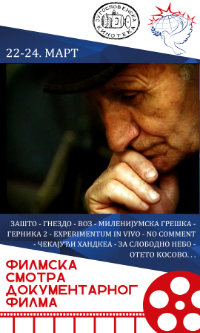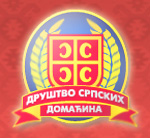Propositions of the International Science and Public Conference Yalta – Potsdam – Helsinki – Belgrade: In Search for Secure World Order on the Issues of Security and Cooperation in Europe in the XXI century 24-25 November 2015, Belgrade, Serbia
| Activities - conference-belgrade-24-25-november-2015 |

The participants of the International Science and Public Conference Yalta – Potsdam – Helsinki – Belgrade: In Search for Secure World Order dedicated to the historic agreements and pressing issues of security and cooperation in Europe, which has brought together representatives of many states around Europe, Asia and America, following the results of a widespread public dialog and opinion interchange that took place during the year of the 70th anniversary of the Yalta and Potsdam Conferences and the 40th anniversary of the signing of the Final Act of the Conference on Security and Cooperation in Europe, consider it necessary to declare:
The issues of security and cooperation in Europe and in the whole world have been a long established subject matter of interstate agreements and inter-country collaboration. At the same time, we believe that the current state of affairs makes a true progress and continuous headway movement impossible without the support of the public opinion and involvement of non-governmental initiatives in the development of the system of security and cooperation in Europe, based on mutual trust.
This has become ever more evident after Turkish military air force shot down the Russian fighter jet conducting a flight as part of the anti-terrorist operation in Syria and Iraq, which may lead to tragic consequences for peace in the whole world. The Conference also underscores that without Russia’s participation it is impossible to resolve the Syrian crisis and counteract international terrorism deeply rooted in many regions around the globe.
We are convinced that the terrorist attacks in Turkey, the explosion of the Russian jet over the Sinai peninsula and mass murders in Paris that claimed hundreds of lives have brutally challenged the global community and demonstrated the necessity of searching for the new approaches, reinforcing and joining the efforts for a coordinated fight against international terrorism and extremism as a global threat to humanity.
In this respect we consider it necessary to urge the Organization for Security and Cooperation in Europe, other international organizations and the global community in general to consider specific proposals on optimization of activity in the sphere of security and cooperation, strengthening mutual understanding and the search of compromises on the pressing issues. We suppose that the International Science and Public Conference Yalta – Potsdam – Helsinki – Belgrade: In Search for Secure World Order, held in Serbia, a country with a non-aligned status and rich traditions of a European political center of the Nonaligned Movement, may start a meaningful international public dialog on the ways of creating an effective system of security and cooperation in Europe. Therefore we believe that the Final Document of the International Conference may be presented at the OSCE Ministerial Council that will take place on 3-4 December, 2015 in Belgrade.
SECURITY AND COOPERATION IN EUROPE AT THE PRESENT STAGE
The Yalta and Potsdam Conferences and the signing of the Final Act of the Conference on Security and Cooperation in Europe, the anniversaries of which are celebrated this year, have become the most important events in the contemporary history and in many respects have laid the foundation for the modern system of security in Europe and in the world in general. This system somehow successfully functioned in the post-war period and has become a significant heritage of the overall results of WWII, and came as the result of immense losses, suffered by the peoples during the years of the world’s latest global conflict.
However the current stage of international relations in Europe and the world is characterized by a growing danger of acute conflicts, absence of effective global and regional safety practices and major turmoil prevention mechanisms.
Today’s world is facing increasing risks and threats to its security and stability. A special concern is that the existing framework of foreign relations in Europe is experiencing a crisis of mutual trust.
Breach of the main principles of the international law, including the UN Charter, the Helsinki Final Act, unfortunately, has become a norm. Here in Belgrade, the capital of Serbia where this Conference takes place, we should not forget that Yugoslavia was the first victim of the direct violation of the Helsinki Agreements. In this respect we ask all actors of foreign relations to support the observance of international law and the main principles of foreign relations, to fulfill in good faith all obligations and strengthen credibility of universal international organizations.
Considering the location of this Conference, we emphasize a vital necessity of supporting peace and security in the Balkans as a constituting part of Europe and of the European system of security, and in this respect, a particular importance of the strict observance of the Dayton Accord, the UN Security Council Resolution №1244 (year 1999) and other international legal documents of obligations.
Europe and the world in general are witnessing a rapid increase in extremism and terrorism. Indeed security and stability in Europe are inseparable from the stability in the other regions of the world. Therefore the future of the European stability can be perceived and correctly reflected only within the context of stability in the Middle East, Asia and Africa.
A particular concern is that growing propensity towards conflict in Europe leads to yet another exceptionally dangerous trend – the trend of world fragmentation, drawing of new dividing lines, also in Europe. In this respect, one should acknowledge the fact that resolving the pressing issues of security and safety, laying the foundations of the system of collaboration in the European space in the XXI century, will have to take place against the background of acute social and economic problems, unprecedented migration, growing military escalation, and multiple relapses to block thinking. Security is not a privilege; it is an equal right of all peoples and states. Therefore our efforts should be aimed at the development and improvement of the system that will guarantee equal security for everyone.
We are sure that at present Europe should set a course for creating a truly free space, based on respect of the international law and equality of all people and states, regardless of the size of the territory, population, economic or military power. We believe that the main condition for this is to respect and observe the UN Charter, the principles of the Helsinki Final Act, the Charter of Paris, the role of the UN and in particular the role of the UN Security Council, without any exceptions, lawlessness or double standards.
We suppose that in the XXI century all peoples and states in Europe should enjoy equal possibilities in the sphere of security irrespective of their participation in military, economic and regional organizations. This denotes a necessity of creation of a common area of security and a new level of cooperation and trust among the European countries.
We see Europe of the XXI century as the area of true partnership, respect of sovereignty and territorial integrity, where there rules the freedom of choice of inner development and foreign policy, without any interference into internal affairs, especially in the sphere of security, elections, constitutional arrangement, privatization and human rights. We support the prevention of any conflicts by way of dialog and strictly political means that would guarantee observation of legal interests of all parties.
THE ROLE OF ORGANIZATION OF SECURITY AND COOPERATION IN EUROPE
We strongly believe that the 40th anniversary of the Helsinki Final Act is a good reason for an open public demand for returning the function of the main Common European security organization to the OSCE.
We think that under the circumstances of the European security crisis the OSCE is to obtain a new chance for constructive implementation of the principles, on which the system of security in Europe was being built for years, the principles worked out following the results of the Yalta and Potsdam Conferences of 1945 and based on the outcome of the Helsinki Conference on Security and Cooperation in Europe of 1975. We are convinced that the OSCE has a potential for a significant input into resolving the migrant crisis in Europe, overcoming the return of block thinking, strengthening trust and helping the recovery from crisis in the area of the European security in general.
In this respect we consider it necessary to:
1. Assist the adoption of the Charter of the Organization for Security and Cooperation in Europe aimed at securing the independence and objectivity in the work of the OSCE, making the OSCE a fully-featured international organization, as well as providing better accordance of its activity to the goals originally set at its establishment.
It is necessary to re-confirm the principles on which the system of security in Europe was being built for years, and which were worked out following the results of the Yalta and Potsdam Conferences of 1945 and based on the outcome of the Helsinki Conference on Security and Cooperation in Europe of 1975. It is important to ascertain that all of the OSCE member-states fully adhere to them without exception.
2. Initiate non-governmental assistance in the work undertaken by the OSCE.
The conference participants also address the OSCE and public interest organizations in the member countries proposing to grant this event the status of an annual public conference on the pressing issues concerning security and cooperation in Europe.
We strongly believe that holding an annual conference in the OSCE presiding country inviting the best experts and public figures in Europe shall facilitate the establishment of a system of non-governmental monitoring of the OSCE activities and a system of public expert assessment of the pressing issues related to security and cooperation in Europe. We think that this proposition will enjoy a broad support of the European society as a timely idea aimed at developing interstate interaction in Europe based on the principles of openness and dialog.
3. From our point of view, the first crucial point towards solving the pressing issues of security and cooperation in Europe shall be the creation of a continuously operating sociopolitical International Expert Center (under the auspices of the annual science and public conference) responsible for:
а) monitoring the OSCE activities in order to provide information on the Organization's work at the annual science and public conference on the issues of security and cooperation in Europe,
б) holding regular closed sessions in the presiding country in order to provide independent experts with a platform for exchange of opinions on the pressing issues of security and cooperation.
Creating an International Center designed to become a continuous expert platform for exchange of opinions and broad expert consultations concerning issues of security and cooperation is, in our view, especially relevant whenever there is a deficit of confidence building measures and efficient and permanent information interchange channels.
We, the participants of the International Science and Public Conference «Yalta – Potsdam – Helsinki – Belgrade: In Search for Secure World Order» on the pressing issues of security and cooperation in Europe, are convinced that in the XXI century Europe is facing a difficult process of overcoming animosities and de-escalating the propensity towards conflict, solving multiple economic and social problems, and consequences of open violation of international law. We are positive that through joined effort we will be able to create a truly free space based on the principles of security and cooperation without demarcation lines and «iron curtains» which may become an example for the whole contemporary world to follow.
Participants of the Conference call on the Ministry of the Foreign Affairs of Serbia (as the OSCE 2015 presiding country) represented by the Minister of Foreign Affairs Ivica Dačić to inform the Ministers of Foreign Affairs of the OSCE member countries, who shall meet on December 3-4, 2015 in Belgrade, about the International Conference and its conclusions.
The Final document on russian: https://beoforum.rs/dokumenti/rus-final-document.doc
| < Prev | Next > |
|---|
| Overstatement from Davos 2017. |
Liberal corporative capitalism, for reasons of lowering traveling costs, proposed not to travel to history alone but packed togather with NATO, EU and unipollar World Order. Workers participation has good chances to step in provisionally, buying time for full scale workers selfmanagment. |









